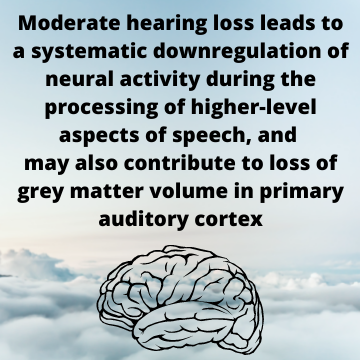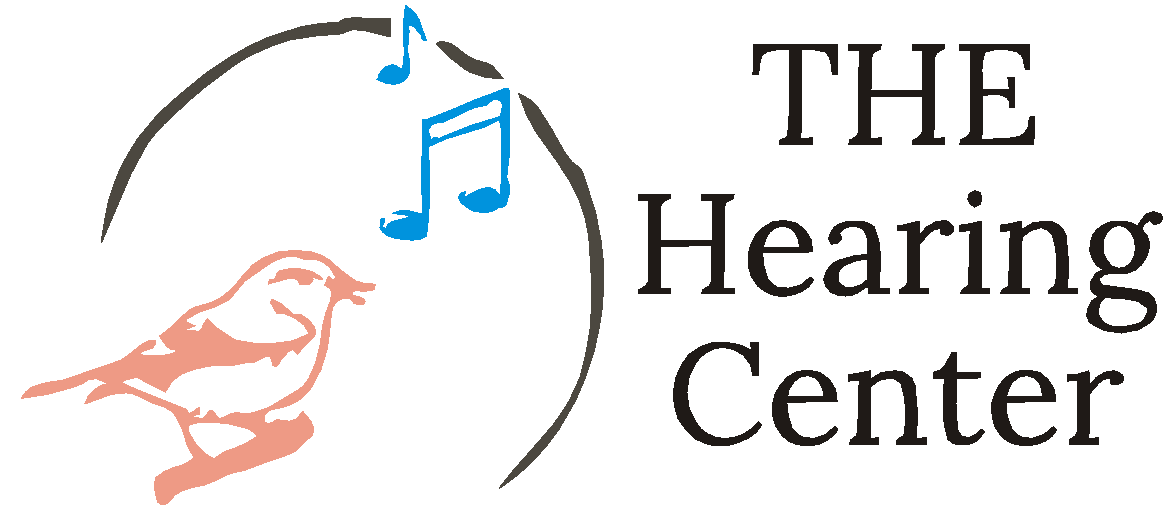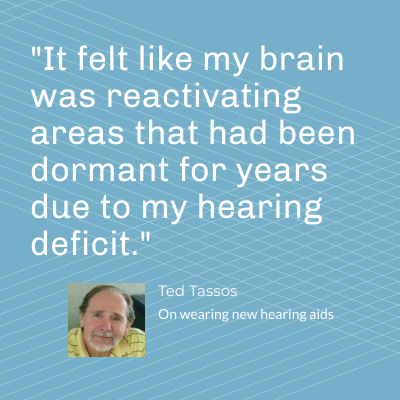
- Research Name Hearing Loss in Older Adults Affects Neural Systems Supporting Speech Comprehension
- Category Cognitive Decline
- Date 08/31/2011
Hearing loss does seem to shrink some parts of the brain responsible for auditory response. In a study led by Jonathan Peelle, now at Washington University in St. Louis, older adults underwent brain scans while they listened to sentences of varying complexity. They also took tests that measured “gray matter,” the regions of the brain involved in muscle control, and sensory perception such as seeing and hearing, memory, emotions, speech, decision making, and self-control.
It turned out that the neurons (brain cells) in people with hearing loss were less active when they focused on complex sentences. They also had less gray matter in the auditory areas. These effects may accumulate with time or be triggered by age: In other research, Peelle found that older adults with hearing loss do worse on speech comprehension tasks than younger adults with hearing loss.
Hearing Loss in Older Adults Affects Neural Systems Supporting Speech Comprehension
JNeuroSci: The Journal of Neuroscience
Abstract
Hearing loss is one of the most common complaints in adults over the age of 60 and a major contributor to difficulties in speech comprehension. To examine the effects of hearing ability on the neural processes supporting spoken language processing in humans, we used functional magnetic resonance imaging to monitor brain activity while older adults with age-normal hearing listened to sentences that varied in their linguistic demands. Individual differences in hearing ability predicted the degree of language-driven neural recruitment during auditory sentence comprehension in bilateral superior temporal gyri (including primary auditory cortex), thalamus, and brainstem. In a second experiment, we examined the relationship of hearing ability to cortical structural integrity using voxel-based morphometry, demonstrating a significant linear relationship between hearing ability and gray matter volume in primary auditory cortex. Together, these results suggest that even moderate declines in peripheral auditory acuity lead to a systematic downregulation of neural activity during the processing of higher-level aspects of speech, and may also contribute to loss of gray matter volume in primary auditory cortex. More generally, these findings support a resource-allocation framework in which individual differences in sensory ability help define the degree to which brain regions are recruited in service of a particular task.


